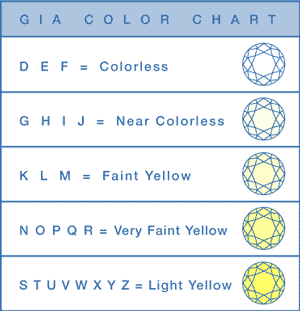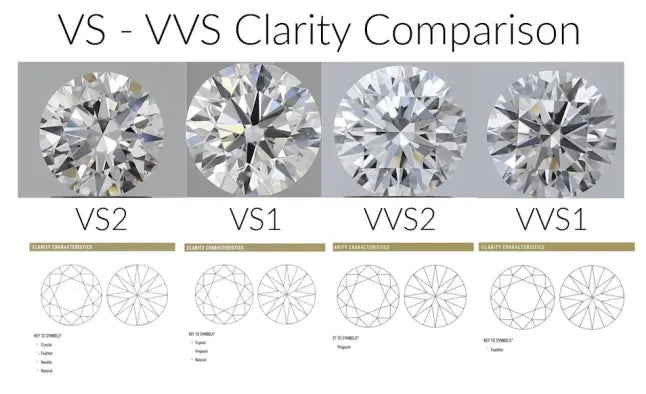While the gemstone often takes center stage, the metal of your ring plays a crucial role in its overall aesthetic, durability, and value. From the classic elegance of gold to the contemporary appeal of platinum, understanding the different metal types and colors empowers you to make a choice that complements your style and lifestyle.
Precious Metals: The Foundation of Fine Jewelry
Precious metals are prized for their rarity, beauty, and resistance to corrosion. They are the foundation of fine jewelry, offering a range of options to suit diverse tastes and budgets.
Gold: A Timeless Classic

Gold is the most popular choice for rings, revered for its warm luster and enduring beauty. It's available in various colors, each with its own distinct character:
- Yellow Gold: The most traditional choice, yellow gold exudes a classic and timeless appeal.
- White Gold: Created by alloying gold with white metals like palladium or nickel, white gold offers a contemporary and sophisticated look. It's often rhodium-plated to enhance its whiteness and durability.
- Rose Gold: Achieved by adding copper to the gold alloy, rose gold has a romantic and vintage charm.
Gold purity is measured in karats (K). 24K gold is pure gold, but it's too soft for everyday wear. Common karatages for jewelry include 14K (58.3% gold) and 18K (75% gold). Higher karat gold is more valuable but also softer and more prone to scratches.
Platinum: Rare and Enduring

Platinum is a rare and dense metal, prized for its naturally white color, exceptional durability, and hypoallergenic properties. It's more expensive than gold but offers superior resistance to scratches and tarnish. Platinum is an excellent choice for those seeking a luxurious and long-lasting ring.
Palladium: A Platinum Group Metal
Palladium belongs to the platinum group of metals and shares many of its desirable qualities. It's naturally white, hypoallergenic, and highly durable. Palladium is lighter than platinum and often more affordable, making it an attractive alternative.
Alternative Metals: Modern and Unique
For those seeking a distinctive and contemporary look, alternative metals offer a range of unique options:
Titanium: Lightweight and Durable

Titanium is a lightweight and incredibly strong metal, known for its dark gray color and modern appeal. It's hypoallergenic and highly resistant to corrosion, making it a popular choice for those with active lifestyles.
Tungsten Carbide: Scratch-Resistant and Bold
Tungsten carbide is an extremely hard and scratch-resistant metal, known for its bold and contemporary look. It's often used in men's rings and offers exceptional durability. However, tungsten carbide rings cannot be resized.
Stainless Steel: Affordable and Versatile
Stainless steel is a durable and affordable metal that's resistant to tarnish and corrosion. It's a popular choice for everyday jewelry and offers a sleek and modern aesthetic.
Factors to Consider When Choosing a Ring Metal
Selecting the right metal for your ring is a personal decision. Here are some key factors to consider:
- Lifestyle: Consider your lifestyle and how often you'll be wearing the ring. If you have an active lifestyle, opt for a durable metal like platinum or titanium.
- Skin Sensitivity: If you have sensitive skin, choose a hypoallergenic metal like platinum, palladium, or titanium.
- Color Preference: Do you prefer the warm tones of gold or the cool elegance of white metals? Consider your personal style and the color of your gemstone.
- Budget: Set a realistic budget and explore the options available within your price range. Precious metals like platinum and gold are more expensive than alternative metals.
- Maintenance: Different metals require different levels of care. Gold may require occasional polishing, while platinum is relatively low-maintenance.
Caring for Your Ring Metal
Proper care will help maintain the beauty and longevity of your ring metal. Here are some essential tips:
- Regular Cleaning: Clean your ring regularly with a soft cloth and mild soap or a jewelry cleaning solution specifically designed for your metal type. Avoid harsh chemicals and abrasive cleaners.
- Professional Cleaning: Have your ring professionally cleaned and inspected by a jeweler at least once a year.
- Proper Storage: Store your ring in a soft pouch or jewelry box when not in use to prevent scratches and tangles.
- Avoid Harsh Chemicals: Remove your ring before engaging in activities that could expose it to harsh chemicals, such as cleaning or swimming in chlorinated water.
Conclusion
The metal you choose for your ring is an integral part of its design and character. By understanding the different metal types, their properties, and their care requirements, you can make an informed decision that complements your style, budget, and lifestyle. Whether you're drawn to the timeless elegance of gold, the modern appeal of platinum, or the unique qualities of alternative metals, your ring will be a cherished symbol of your personal taste and enduring commitment.






